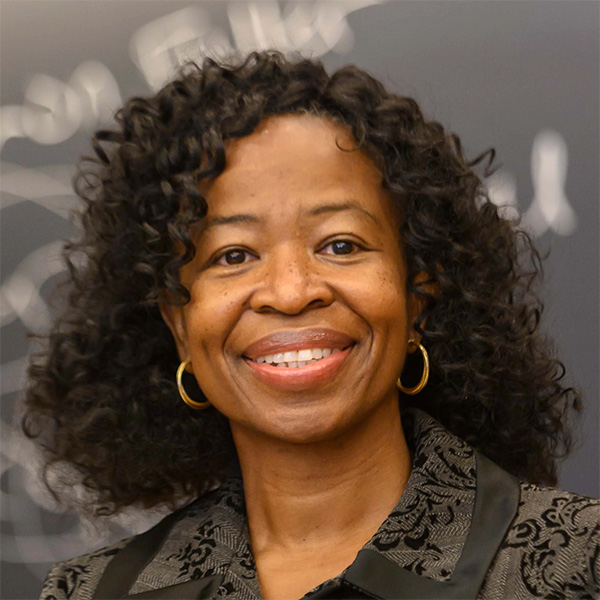
Ruth L. Okediji said attendees should focus on loving God to create an “integrated way of living” at a forum in the Marriott Center on Tuesday, Jan. 30.
Hundreds of attendees gathered to listen to current Harvard law professor Ruth L. Okediji talk about the paradox of religious freedom.
Okediji started out by saying she was “fully an academic and fully a person of faith” and for her, those things coexist in life.
“I pray in the classroom. Yes, at Harvard, in case you were wondering,” she said. The audience applauded in response.
Religious freedom began as a way to resist the claims of monarchs, she said, but has had the opposite effect in some cases, stopping people of faith from being fully integrated in their societies.
“The stronger a state is committed to religious freedom, the less faithful presence Christians are likely to have and encouraged to have in secular society,” Okediji said.

In the United States, public and private spheres have been delineated in order to protect people’s rights, but we lose out as a society on the positive things religion could bring, she said.
Loving God only in the private sphere is “uniquely un-Christian,” said Okediji, especially when Jesus taught us to “love the Lord your God with all your heart, with all your soul, and with all your might.”
By following Jesus’ way, she said, we unlock our power to become better citizens and become a more integrated person.
“It is not ‘love your God in church or at school or at home,’ it is simply and daringly just ‘love God.’ This is the heart of human dignity; you are loved, I am loved and we are to love others,” Okediji said.
In order to fully participate in that love, our private and public lives, or religious and secular lives, should go hand in hand.
For Julia Morgan, a product design major from Salt Lake City, the teaching about loving God in all aspects of life was her favorite part.
“She specifically said asking questions is showing our love, and I really agree with that. Being fully engaged with our learning is part of our spirituality and our relationship with God,” Morgan said.
Okediji concluded by arguing that private virtues have a benefit for the public, and that we can create better citizens and a better country by reconsidering our definition of religious freedom.
“In embracing religious freedom indiscriminately, people of faith have unwittingly contributed to the insulation of the state from moral accountability for its choices,” Okediji said.
As students gathered their belongings at the conclusion of the speech, Anna Partridge, a 21-year-old advertising major who attended the forum, wrote in her notebook that we should be conscious of what we worship, because all humans worship something.
“Faith actually improves people’s lives,” Okediji said in conclusion, and challenged BYU students to bring their faith into their respective fields in the public sphere.
Ruth L. Okediji is the Jeremiah Smith Jr. Professor of Law at Harvard Law School and co-director of the Berkman Klein Center.
Visit BYU’s website to see the schedule of upcoming forums and devotionals.




